The Conference will be devoted to Energy Transition in Electrified Transportation. The aim of the Conference is to promote a forum where people in the electrical transportation systems community can share their experiences and bring perspectives about present and future challenges. The conference will bring together academic and industrial experts in emerging topics related to electrical systems for aerospace, railway, ship, and road vehicles. Academic and industrial work of technical excellence at the forefront of research in the power electronics and power systems fields are encouraged and welcomed.
The Conference will hold meetings, tutorials, technical sessions, industrial workshops, and exhibitions. The Conference will host an exhibition of Electric Vehicles (EVs) on the seafront promenade.
The event is organized by the University of Naples Federico II, the University of Trieste and the University of Cassino, and supported by the University of Nottingham and the University of Toulouse.
Diego Iannuzzi
Mario Pagan
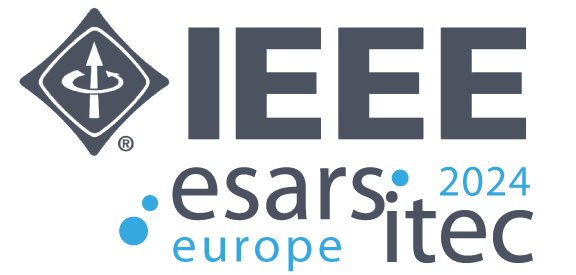
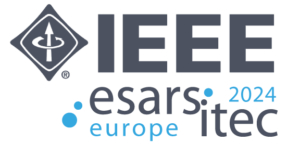
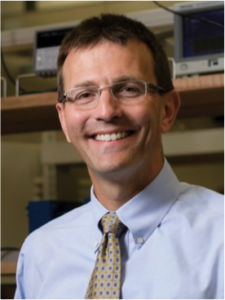
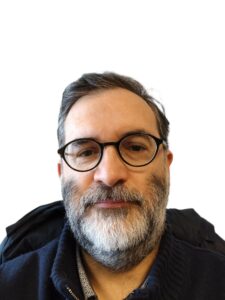 Didier Frugier after his electrical engineering degree at university of Grenoble (ENSIEG), Didier Frugier started to work for French Railways (SNCF) in 2000 as power semiconductors specialist at Lyon’s locomotives engineering centre. He was in charge of reliability improvement of semiconductors devices with various technologies (diodes, thyristors, GTO, IGBT, Bipolar transistors…) for whole SNCF rolling stock’s power converters. Since 2005, he is located in Le Mans at Rolling Stock Engineering Centre. After many tasks focused in electric traction on rolling stock acquisition or transformation projects and homologations processes, he was involved in resolution of electrical interaction disturbances between rolling stock and power supply, signalling or telecommunication systems (overvoltages, low frequency instability, perturbations due to harmonics…). Since 2023, he is the senior expert of the “Electrical Traction Energy HV Components” Department for electric traction chain and EMC for railway system.
Didier Frugier after his electrical engineering degree at university of Grenoble (ENSIEG), Didier Frugier started to work for French Railways (SNCF) in 2000 as power semiconductors specialist at Lyon’s locomotives engineering centre. He was in charge of reliability improvement of semiconductors devices with various technologies (diodes, thyristors, GTO, IGBT, Bipolar transistors…) for whole SNCF rolling stock’s power converters. Since 2005, he is located in Le Mans at Rolling Stock Engineering Centre. After many tasks focused in electric traction on rolling stock acquisition or transformation projects and homologations processes, he was involved in resolution of electrical interaction disturbances between rolling stock and power supply, signalling or telecommunication systems (overvoltages, low frequency instability, perturbations due to harmonics…). Since 2023, he is the senior expert of the “Electrical Traction Energy HV Components” Department for electric traction chain and EMC for railway system.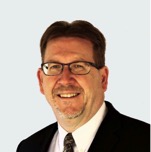 Todd Spierling, Director, Electrification, Collins Aerospace, Rockford, IL.Todd Spierling is Director for Electrification at Collins Aerospace. He is a part of the Power & Controls Engineering organization located in Rockford, Illinois. In his current role, Todd provides technical leadership in all elements of aircraft electrification, including Electric Propulsion, More Electric secondary systems, and Propulsion, Power & Thermal Management Systems. He supports customer technology engagements, new business pursuits, and company and corporate level strategic technology planning.
Todd Spierling, Director, Electrification, Collins Aerospace, Rockford, IL.Todd Spierling is Director for Electrification at Collins Aerospace. He is a part of the Power & Controls Engineering organization located in Rockford, Illinois. In his current role, Todd provides technical leadership in all elements of aircraft electrification, including Electric Propulsion, More Electric secondary systems, and Propulsion, Power & Thermal Management Systems. He supports customer technology engagements, new business pursuits, and company and corporate level strategic technology planning.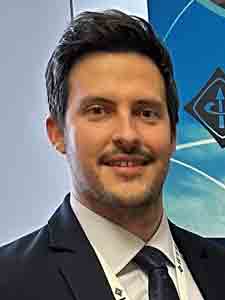 Andrea Colavitto is the Head of Research & Innovation at Fincantieri SI, a subsidiary of the Fincantieri Group, which specialises in the design and supply of advanced integrated systems for industrial electrical, electronic, and electromechanical components.
Andrea Colavitto is the Head of Research & Innovation at Fincantieri SI, a subsidiary of the Fincantieri Group, which specialises in the design and supply of advanced integrated systems for industrial electrical, electronic, and electromechanical components.